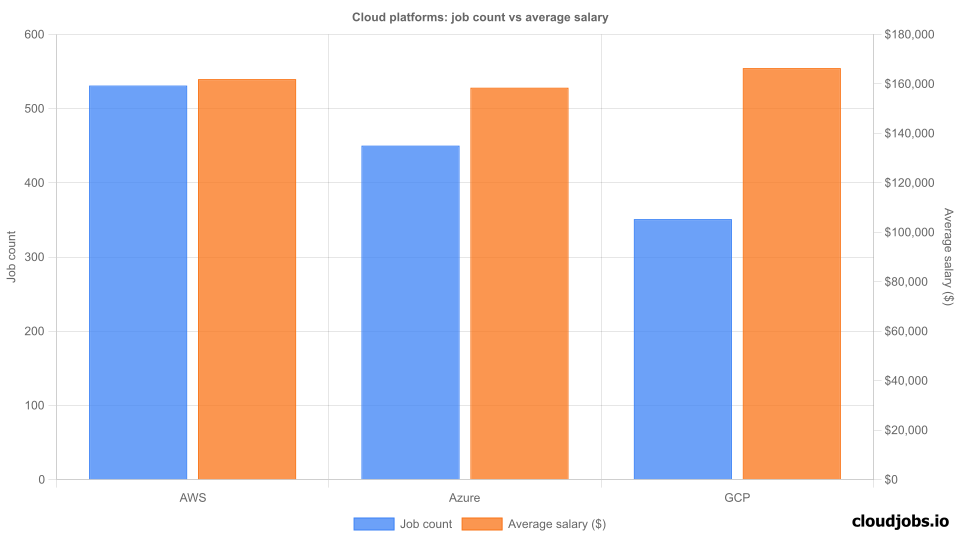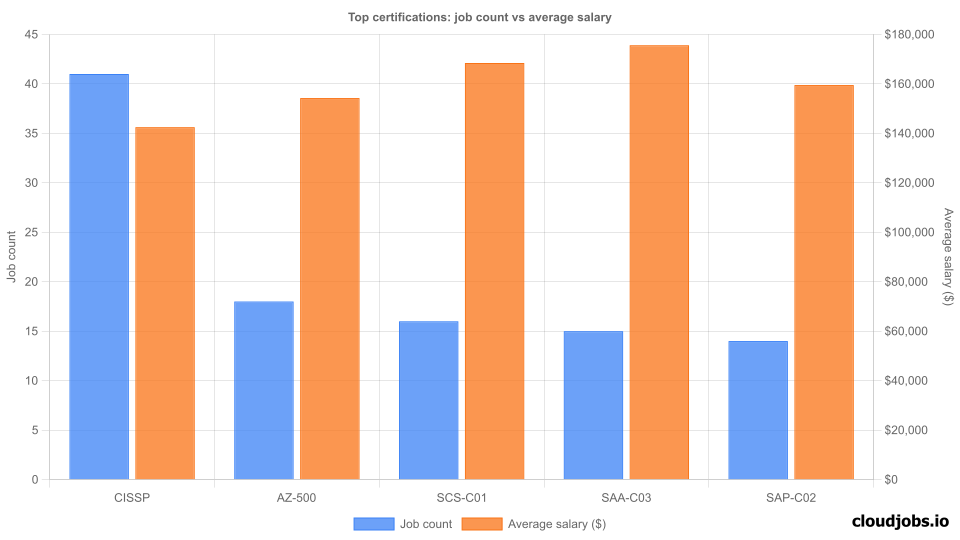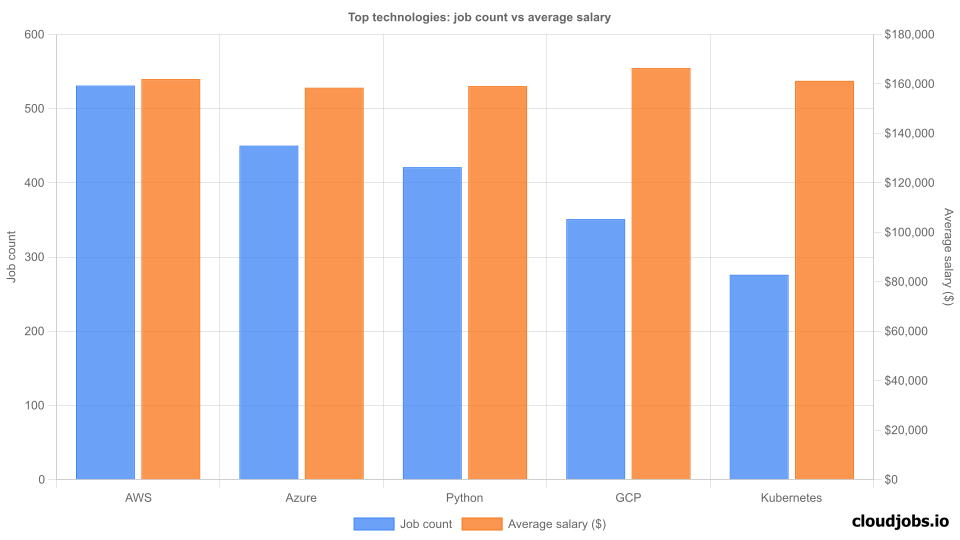October 4: Cloud Job Market Snapshot
October 5, 2025
Azure moved up to 2nd in job postings; Python fell to 3rd in job postings; Kubernetes postings fell 27%.
Multi-Cloud Market Briefing: Week of October 4
Executive Summary
In the week of September 29, 2025, the multi-cloud job market exhibited notable shifts, with Azure climbing to second place in job postings, while Kubernetes postings experienced a significant decline of 27%. Security roles continue to command high salaries, averaging $153,863 across 63 listings, underscoring the growing demand for expertise in this domain.
Multi-Cloud Snapshot
The cloud platforms visualization reveals a competitive landscape among AWS, Azure, and GCP. AWS leads with 531 job postings and an average salary of $161,922, followed closely by Azure with 450 postings and an average salary of $158,439. GCP, while trailing in job count at 351 postings, offers the highest average salary at $166,000. This data indicates a trend where GCP is not only attracting talent but also compensating them more generously, exceeding AWS by $9,475 in median offers.
The job market for Oracle Cloud remains less prominent, suggesting that while AWS and Azure dominate, GCP is emerging as a strong contender, particularly for roles that require specialized skills. The overall interquartile salary spread averages $69,146 across these platforms, indicating a healthy variance in compensation that reflects the diverse skill sets required in the cloud sector.
 job count and average salary for major cloud platforms
job count and average salary for major cloud platforms
Top Certifications Analysis
The top certifications visualization highlights the significant value of certifications in the cloud job market. The CISSP (Certified Information Systems Security Professional) leads with 41 job postings and an average salary of $142,474, making it a critical credential for security roles. The SAA-C03 (AWS Certified Solutions Architect - Associate) follows closely with 15 postings and a higher average salary of $175,614, indicating its strong demand and value in the AWS ecosystem.
Other notable certifications include the AZ-500 (Azure Security Engineer Associate) with 18 postings and an average salary of $154,247, and the SCS-C02 (AWS Security Specialty) with 16 postings and an average salary of $168,445. These figures suggest that professionals seeking to maximize their earning potential should prioritize certifications that align with high-demand roles, particularly in security and architecture.
 top certifications by job count with salary overlay
top certifications by job count with salary overlay
Technology Demand Analysis
The top technologies visualization provides insights into the current demand for various technologies within the cloud landscape. AWS remains the most sought-after technology with 531 job postings and an average salary of $161,922. Azure follows with 450 postings and an average salary of $158,439, while GCP, despite fewer postings, offers the highest average salary at $166,000.
Emerging trends indicate a growing demand for Kubernetes, which, despite a 27% decline in postings, still commands an average salary of $161,225. This suggests a potential skill gap as organizations continue to adopt container orchestration technologies. Additionally, Python remains a critical skill, with 421 job postings and an average salary of $159,090, highlighting its importance across cloud platforms.
 top technologies by job count with salary overlay
top technologies by job count with salary overlay
Market Outlook
The findings across all visualizations indicate a robust and evolving cloud job market. With Azure's rise in job postings and GCP's competitive salary offerings, professionals should consider diversifying their skill sets to include high-demand certifications such as CISSP, SAA-C03, and AZ-500. The data suggests that cloud professionals should focus on developing expertise in emerging technologies like Kubernetes and Python to remain competitive.